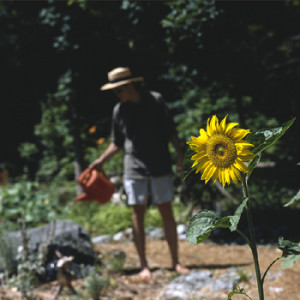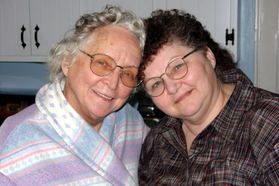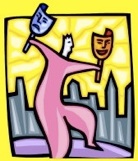
How well I know how that feels. And when friends would say, "Tell me what I can do to help" ... coming up with something other than "Come on over and bring a bottle of wine..." was tough.
But there are things that we can do to help care givers who have a parent or partner at home that they are caring for and run out of ideas for things to keep them busy. While my mom was alive and lived with me, I knew she always loved the garden. In her heyday, she would be out in the garden at 6AM - singing with the birds ...
When she was no longer able to do any gardening on her own, we started a new tradition. Mom was the official "garden waterer." I would take her outside, with her walker - the kind that had the little seat when you turn it around - and get her set, seated on the walker, lock the wheels and gave her the hose. She was outside, got some fresh air, I could hear her singing ... and every 15 minutes or so, I would move her to a different spot in the garden, and set her up all over again. And the dog would become part of the act. It became her job ... and she took it seriously. When I would get ready to go outside to work, mom reminded me that she had to water... when she could not remember many other things,she remembered that - because it was something she loved doing and COULD do. She was so well known for her "watering skills" that neighbors knew something was wrong the first spring day came and Mom was not outside with her hose ...
So, if you can find a task that the person you are caring for can do regularly, inside or outside, with some supervision, it can give them a feeling of usefulness. Polish the silver, fold the lines napkins, sort socks - these are not things that are essential tasks, but can provide the opportunity for you to work together, OR... this is the time to tell the friends who ask "What can I do?" ... THIS IS WHAT YOU CAN DO. I need someone to "caregiver-sit" for an hour today or a half and hour every Thursday (so I can get a manicure - because as a CAREGIVER - YOU DESERVE IT) or spend that half an hour with someone else in your household that looks to you for love, or who's love you need to recharge your battery. And they can help sort the socks, fold the linens.
And remember, every small step is a victory, and in this world of care-giving, it is the small victories that we celebrate.




 RSS Feed
RSS Feed


